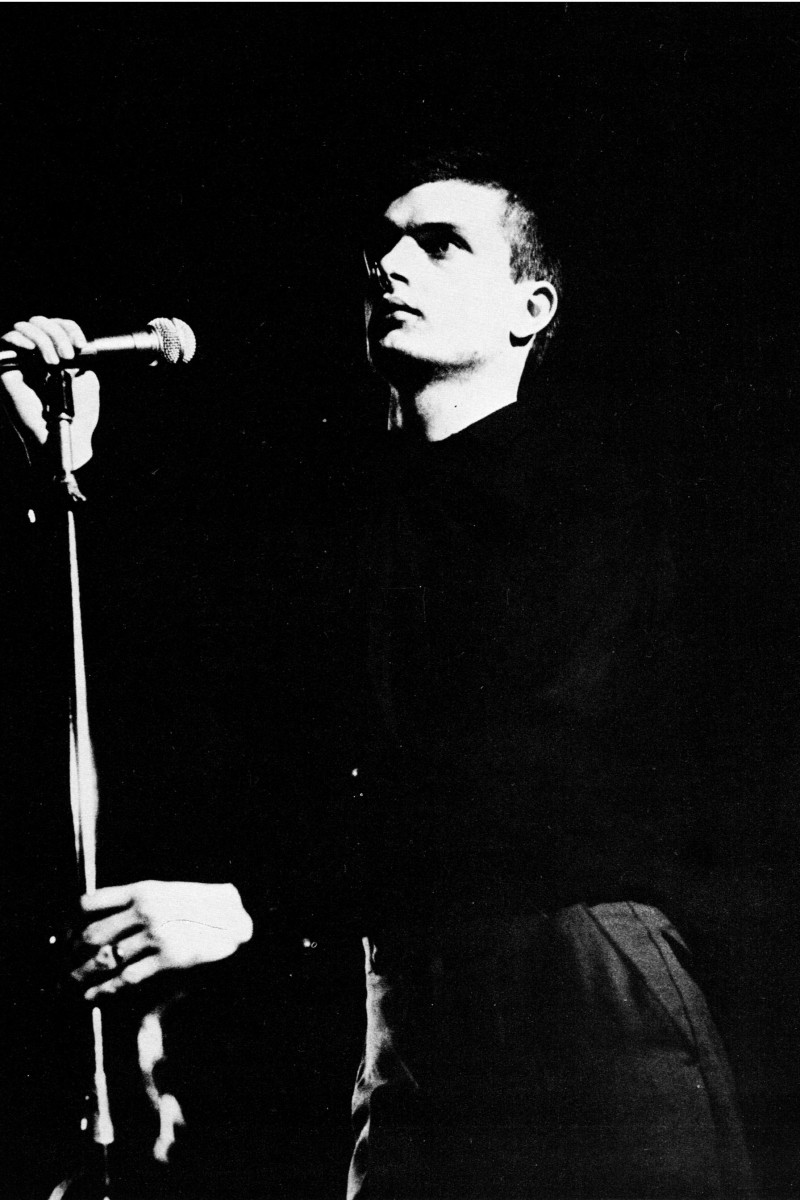This year marks the 40th anniversary of the release of the acclaimed Joy Division album Unknown Pleasures. The album was the “sound of the future” when it was released in 1979, and sounds as relevant, urgent and “from the future” here and now, as it did then. One of the most pivotal albums ever recorded, Unknown Pleasures has influenced countless creative minds over the years and continues to be an instructive legacy that sees no end – a seemingly endless vision of Joy Division as truth and myth, as well as the continuing legacy being created by the band they morphed into: New Order.
Working together with the band, their visual coordinator Warren Jackson has commissioned 10 new films, one for each track on the album, which will present a filmic re-imagining of the music in 2019. Collaborating with established artists and directors as well as up-and-coming filmmakers, the clips are created by those for whom Joy Division and the album Unknown Pleasures has provided sense, form and framing, a fractured influence on their own insights, art and process.
The series of videos, sound-tracked by the original Joy Division recordings, will be released over the course of 2019 beginning in June. The first video for “I Remember Nothing,” directed by Iceland’s Helgi and Hörður who combine their skills as editor and image-maker into regularly epic visualisations realised as commercial work and music video. They have worked with the Academy Award-winning singer Marketa Irglova, as well as with Sigur Ros and Yoko Ono. Their clip for “I Remember  Nothing” features Iceland’s leading actor Baltasar Breki Samper, who is also in the acclaimed TV drama “Chernobyl.” Helgi and Hörður say they are the salt and pepper for your soup, and that they are not afraid of flying.
Nothing” features Iceland’s leading actor Baltasar Breki Samper, who is also in the acclaimed TV drama “Chernobyl.” Helgi and Hörður say they are the salt and pepper for your soup, and that they are not afraid of flying.
PREVIOUSLY: An ultimate music geek movie, Control allows Joy Division über fan Anton Corbijn, the band’s one-time photographer, to reconstruct the dreary world of mid-seventies Manchester for this new biopic of band singer/lyricist Ian Curtis. It’s a dazzling resurrection, in overblown black & white. Corbijn gets every detail right in his obsession to summon the stark landscape that gave birth to Joy Division desolate vision. Once we get used to Control‘s austere beauty, we find a film hung up by the same problems that have always afflicted star bios: the rise to stardom is infinitely more engaging than the sad and steady slide down.
For the first hour though, the film moves along entertainingly, like a good Mojo profile. We see Curtis as a lanky and fey high school student, wearing his little sister’s tiny fake fur jacket and dancing in the mirror to Hunky Dory. We see him steal his friend’s girl and we see him occasionally stopping to scribble words in his notebook. Post-industrial Manchester is an uneventful little place and Corbijn directs the action like one of those sixties British working class dramas, the silvery sheen of cinematographer Martin Ruhe’s black & white giving the gloom a subtly romantic air.
iancurtis.jpgThe actors are right in tune with Control‘s underplayed dramatics, Sam Riley (who briefly played The Fall’s Mark E. Smith in 24-Hour Party People) creates an utterly human portrait of Curtis. Much of his performance is near stone-faced – an dilemma of an actors playing the depressed – but Riley’s lean frame gives him the chance to communicate with an infinite and articulate display of slumps. It’s a slump-tastic performance, which occasionally catches fire as he’s brought on stage to recreate Curtis’ peculiar marching frontman stance. MORE
RELATED: ‘Everyone Calls Us Nazis’
